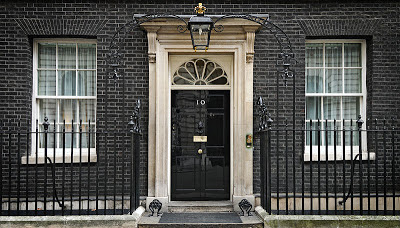There are some gaps in the clouds, now and again. Last week wasn’t just taken up with my Research Excellence Framework ‘impact statement’ (be thankful that you don’t know what this refers to, if those words have left you none the wiser). Nor my role as Faculty Chair of Research Degrees. Or marking. Second marking. External examining. Chasing administrative glitches and paperwork mess-ups here, there and everywhere. Or even (perish the thought) researching and writing.
It’s not all work, you know. Oh no. On two different
weekday nights I was able to get out and go to the cinema to see massive old
American blockbusters: Iron Man 3 (above) and Star Trek: Into Darkness, to be precise.
So far, so unremarkable. Big deal, you might think, except it both experiences
got me thinking... About postmodern, late capitalism, and the art of sensation.
Now I know what you’re thinking. What a pseud, eh? What
do those big-bangs megafilms have to tell us about the state of human society?
Well, quite a lot, I think. Bear with me on this one.
The most remarkable thing about both films was their
fullness. Their sheer bursting-at-the-seams, screaming-at-the-sky,
shouting-at-the-stars, mad, bad, overfull ripeness. Want a bit of ironiccomedy? A few sarcastic one-liners? Some romance? Action? Adventure? You’d have
come to the right place. Not particularly surprising, those headers. But these
films wanted to have it all. They veered around like a drunk driving the wrong
way down the motorway. References to other films? Check. A strong sense of
their own referential (and reverential) canon? Tick. A liberal politics of
threat creation – ‘we create our own demons’, and all that? Yes – combined with
a two-fisted, up-and-at-‘em conservative blow-everything-up-and-to-hell bloody
mindedness that helped to undercut liberal speechifying (and sustain two of the
luckiest heroes, in Tony Stark and Jim Kirk, that you’re ever likely to see).
This blog could go on for days (trust us) just listing
the mix n’ match discourses and genres that were being thrown into the blender.
Buddy films. Affecting dad (or stepdad) movies. Romantic comedies, even,
evident both from Stark’s relationship with a rather chilly Gwyneth Paltrow and Mr
Spock’s with a fire-breathing Uhura. The switcheroo half way through Iron Man 3
is particularly breathtaking, cheeky, funny, disreputable – and ridiculous.
It was like being hit with a filmic power shower.
Invigorating, fun, admirable – and somehow not quite so satisfying as a long
old bath.
What was going on? I’m tempted to say that all this was a
reflection of the vast writing and production teams that work on these films –
legions of experts and choreographers that all want their vision recognised. But
there’s something else that’s important here: a late capitalism that thinks it can
throw everything into the mix and still come up with something coherent, an
incoherent mishmash or collage of styles and ideas that involves the
appropriation of just about everything that pre-modernity, modernity and
post-modernity can throw at the dream machine still run by Uncle Sam, smiles,
and then sells it back to you. It’s a politics of everything, chucked at the
wall to see if some of it will stick. Except that a wall would be better – than
the mind and the head of the audience, subjected to the full panoply of
emotions and the entire gamut of feeling every ten minutes.
You’re left crouching and weaving, enjoying the sensation
of being right in there with your heroes, only to be left spinning, reeling,
giddily weaving out of the cinema, wondering: ‘what the hell was all that about’?
That’s a good summary of where we are in the developed
world right now. Which is not a bad recommendation for any story, really, if
you don’t mind your fun scrambled and your confections confusing.
Me? I’d rather not mix my sweet pineapple with my savoury
pizza quite so much, thank you.







